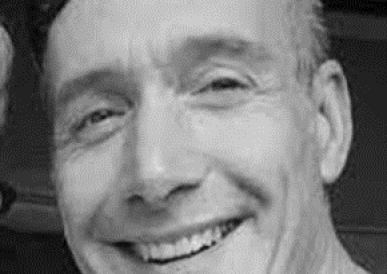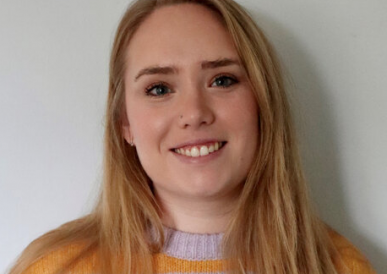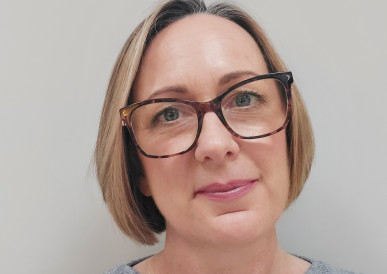Collaborations
 Getting involved with the CDCT
Getting involved with the CDCT
The Centre for Developmental and Complex Trauma (CDCT), St Andrew’s Healthcare, focuses on improving the lives of marginalised populations who have been subject to repeated trauma exposure. The centre was established to provide a forum to network, coordinate and engage in activities to improve outcomes for people who live with the impact of trauma.
In keeping with this focus, the CDCT has a strong co-production and multi-disciplinary focus to ensure that all stakeholders involved in the care and support of people with trauma-related needs have a voice. A sense of ‘ownership’ by providers and recipients of care is key to the success of the CDCT in achieving its aims.
In addition to the core CARE values of the St Andrew’s Healthcare, the CDCT operates around five core academic values:
As such the centre operates a highly collaborative working model, prioritising developing relationships with stakeholder groups to ensure that our work is aligned to our core values.
The broad aims of the Centre are achieved through developing partnerships and practices to deliver comprehensive research, teaching and CPD programmes that incorporate holistic and survivor coproduction work that will focus on some of the most marginalised and disenfranchised sections of society. The core aims of the Centre are the advancement of clinical practice to achieve better outcomes for people who have experienced repeated incidents of trauma. The Centre will operate according to three broad principles:
To improve the lives and outcomes of people who have experienced repeated trauma.
Through recognising the whole-person impact of trauma and to place those affected by trauma at the centre of activities to improve the effectiveness of services. This will be achieved through research, hosting continuous professional development events and through influencing the national policy agenda to ensure that the voices and needs of our populations are reflected in government policy.
To bridge the gap between academic knowledge and clinical practice.
To support the development of models of care derived from research driven by a strong academic rigour and developed by clinicians and peer researchers working in the field. This will be achieved through employing people with lived experience and providing comprehensive training to promote the quality of survivor research. Our service evaluation and research programmes will also have a strong applied clinical focus and will report findings based on the needs of our populations.
To increase awareness of the trauma experiences and care needs for the most marginalised sections of society who are typically excluded, or who are minimally present, in trauma research and have limited access to trauma services.
This will be achieved through focusing our CPD, service evaluation and research activities with these populations and using this platform to inform and influence national policy agendas.
Deborah is a Consultant Clinical Psychologist and the course director for the MSc Practitioner in Psychological Trauma and Postgraduate Diploma Practitioner in Complex Trauma courses at the University of Buckingham. During her career she has worked clinically with adults with complex personality disorder, neurodevelopmental, forensic and mental health needs in the community, assertive outreach, crisis, residential and inpatient settings. Deborah has previously worked in professional and clinical lead positions and in services to support the mental health and trauma needs of healthcare professionals. Her publications and ongoing research interests include; occupational distress and trauma, treatments for personality disorder, intellectual disabilities, developmental trauma disorders, the intersection between trauma and personality disorder, moral injury, gendered approaches to trauma and trauma care, adverse childhood experiences, the physical health impact of exposure to trauma and the psychometric properties of psychological tools.
Deborah holds a number of visiting lecturer roles and lectures on a number of undergraduate and postgraduate courses across different universities.
After graduating from University with undergraduate and master’s degrees in psychology and clinical psychology research, Elanor has worked within research at St Andrew’s Healthcare. Her research interests include psychological trauma in forensic populations, physical health, and moral injury and wellbeing in mental healthcare staff. Alongside her role, Elanor has also recently completed a PhD at University of Central Lancashire, undertaking a programme of research on the sources, risk factors and mechanisms underlying moral injury in secure mental healthcare staff.

Jon is a consultant forensic psychologist and psychotherapist who has worked in a range of prison, secure hospital and community forensic settings for almost 30 years. With a keen interest in developing a rich understanding of the role of trauma and adversity in the lives of those who develop offending behaviours, Jon is committed to promoting and modelling a compassionate and co-operative approach to all aspects of forensic service provision. Jon has been an accredited member of the BABCP since 1995, is a trained Compassion Focused Therapist and cofounder of the CFT forensic special interest group. Jon also lectures on the MSc Practitioner in Psychological Trauma course at the University of Buckingham.

David is a trainer and consultant who is passionate about matters of race and mental health. He is an expert by experience working with the University of Birmingham, Psychology Department and as a Lay Manager for Birmingham and Solihull Mental Health Trust. David also serves on the Board of the Group of Trainers in Clinical Psychology - Involvement Group. He recently completed a Master’s Degree in Theology and Transformative Practice.

Grace has recently rejoined the St Andrew's family to support our growing higher education portfolio including the MSc and development of our new PG Diploma Certificate. Grace is a Senior Forensic Psychologist at Northamptonshire Healthcare NHS Foundation Trust. She is also involved in a number of projects exploring autism diagnosis, trauma, and the evaluation of forensic services. Grace has co-authored a number of publications with Dr Deborah Morris and Dr Elanor Webb.

Katie supports the CDCT team with co-ordination of the international conference programme and as course administrator on the MSc Practitioner in Psychological Trauma course at the University of Buckingham. Katie is an experienced PA and senior administrator. She has worked as Executive Assistant to the CEO for a multi-academy trust and held a variety of roles at The Open University including project support, human resources assistant and personal assistant to the Director of Library Services.

We also have a number of postgraduate students and volunteers working with the centre. For more information about the placements that we offer and other opportunities to get involved with the centre, head over to the 'collaborations' page.
Download our brochure for more information about who we are and what we do. You can also access a copy of our latest annual report for an overview of our achievements and highlights in 2024-2025.